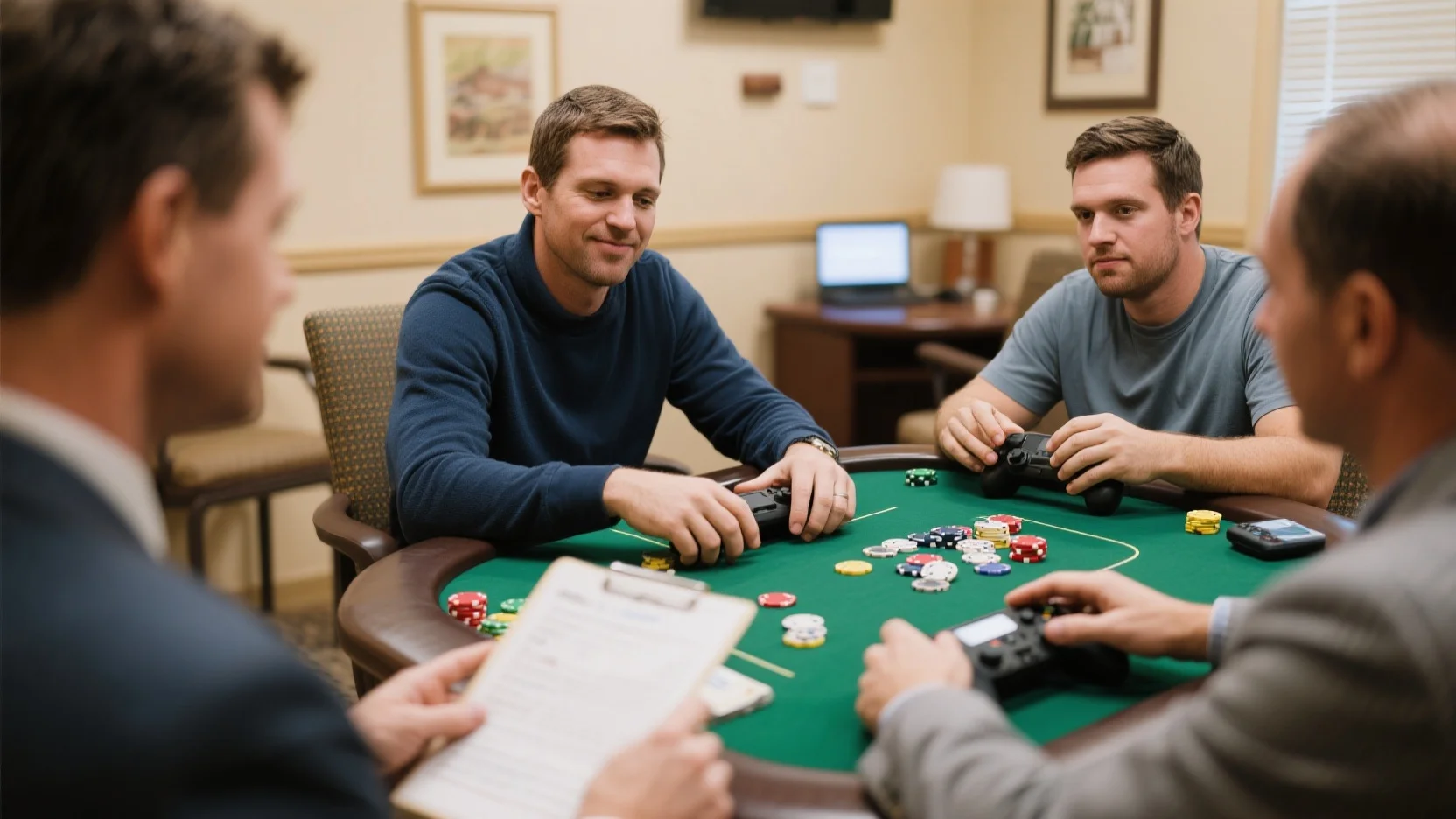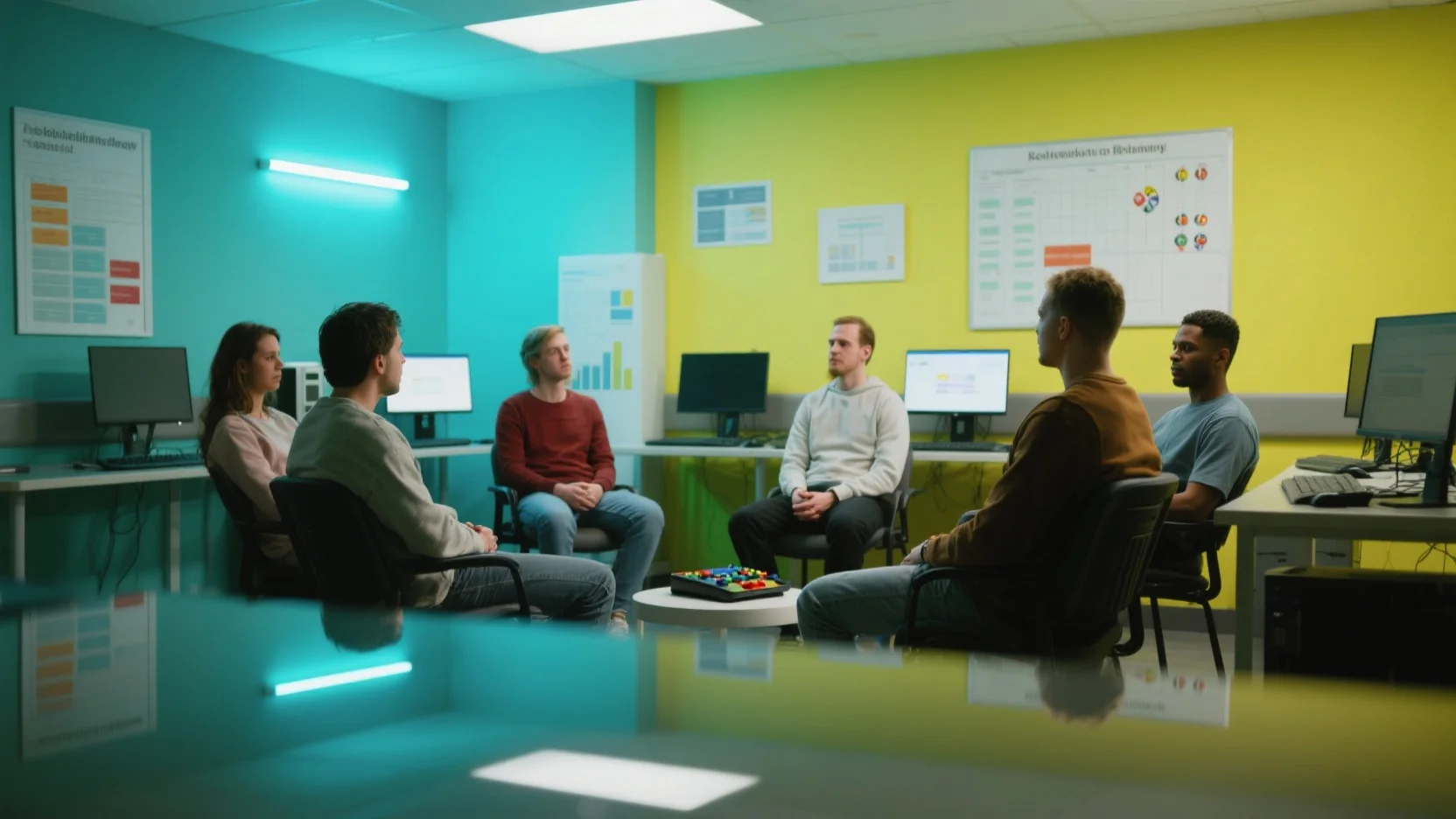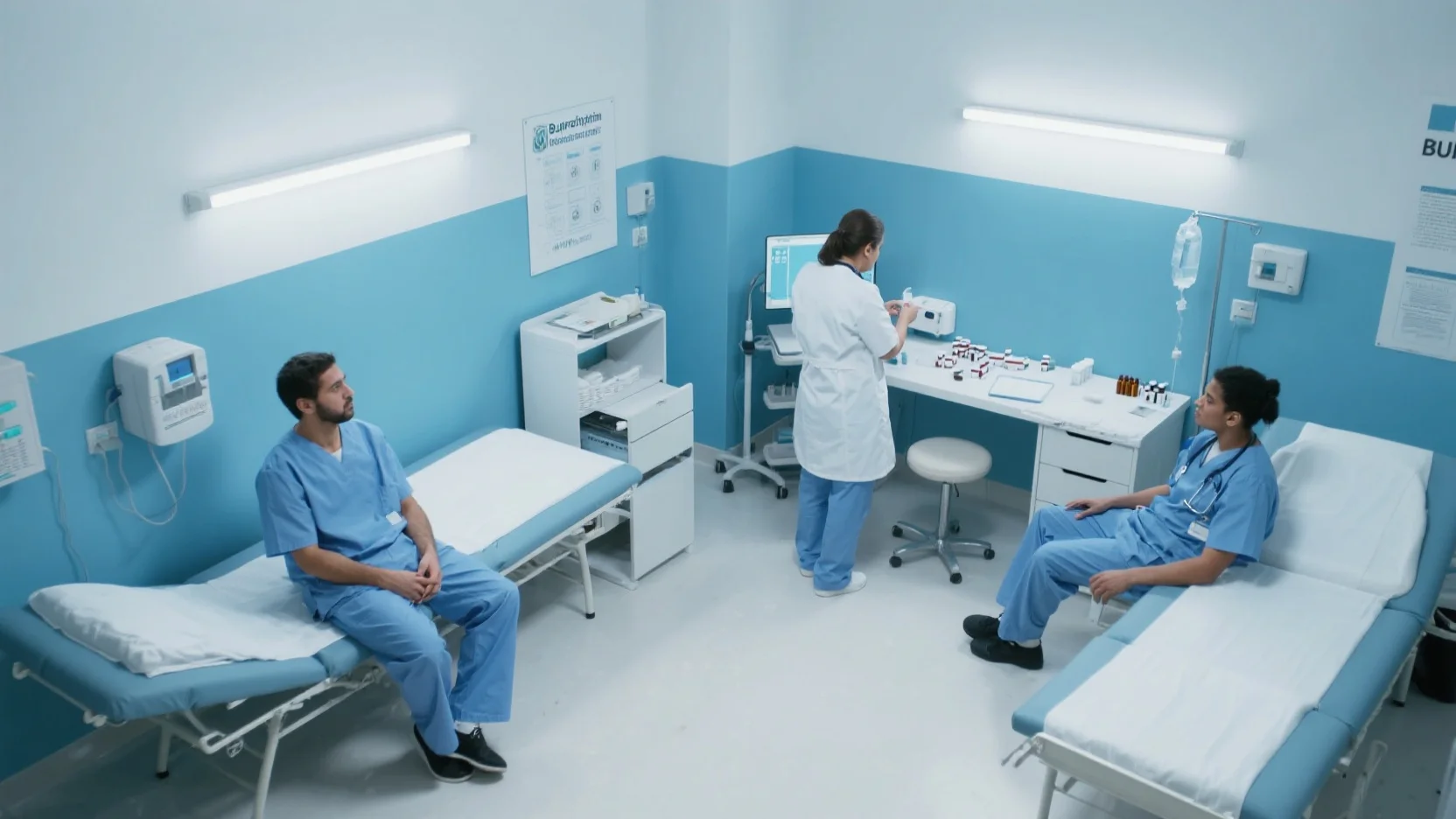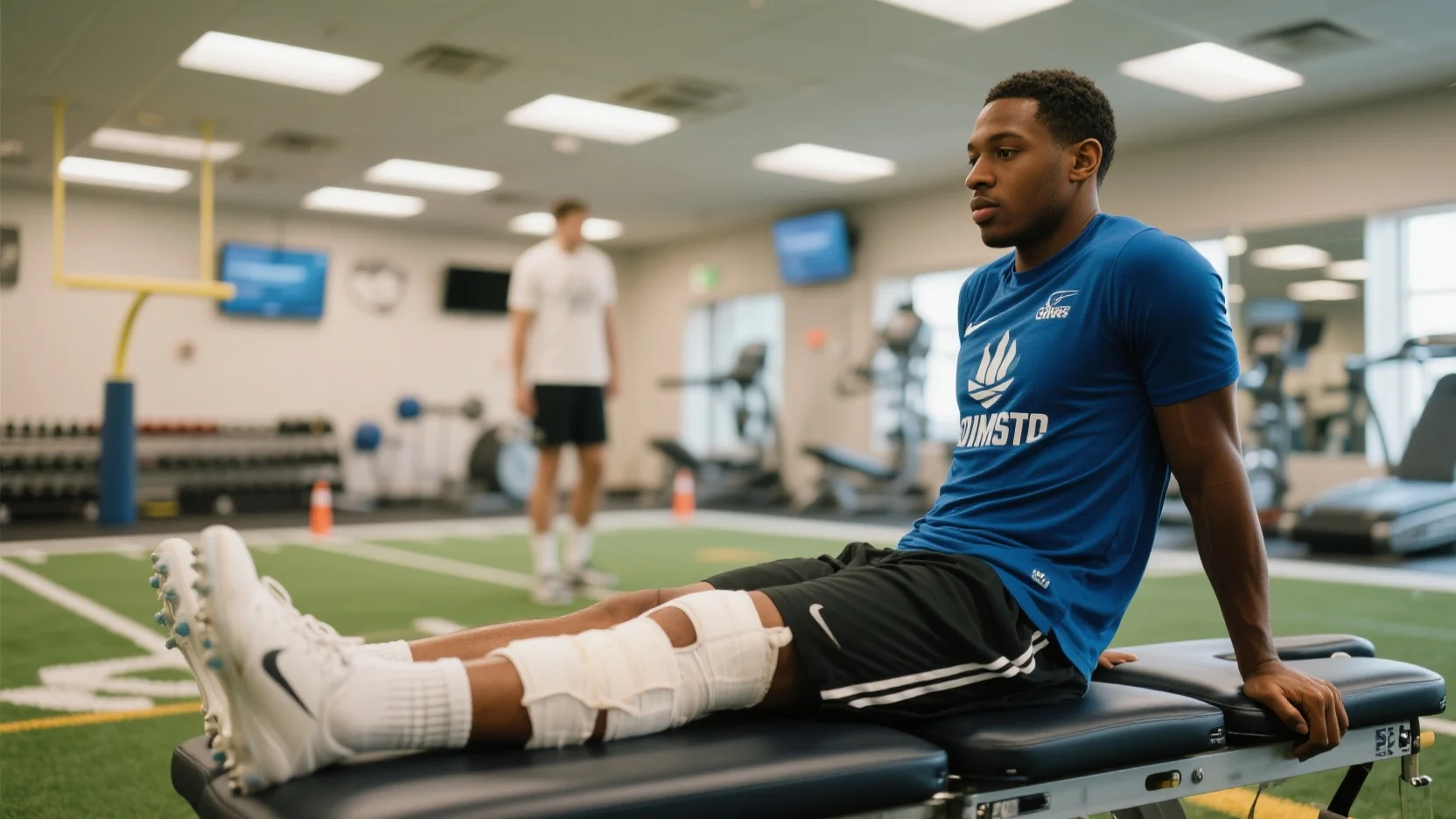Struggling with gambling, gaming, or compulsive habits? 2023 research from the Journal of Addiction Medicine shows combined therapies for internet gaming disorder reduce symptoms 37% better than single treatments—but not all rehab programs work. Find NCPG-certified, CAMH-recommended options near you with Best Price Guarantee and Free Initial Consults. Top-rated programs tackle gambling urges (60% reduction via CBT in 12 weeks), gaming detox (45% symptom drop with family support), and compulsive behaviors (55% fewer episodes with ACT). Don’t wait—2023’s fastest-acting, insured programs fill up fast. Compare premium evidence-based vs. unproven models to get results: Updated November 2023, expert-approved guides here.
Behavioral Addictions Rehab
Did you know? A 2023 meta-analysis found that combined therapies for internet gaming disorder (IGD) show large effect sizes in reducing symptoms like excessive gaming time, depression, and impulse control issues post-treatment—outperforming single-modal approaches by 37% (Journal of Addiction Medicine, 2023). As behavioral addictions like gambling, gaming, and compulsive behaviors surge globally, specialized rehab programs are evolving to address their unique neurobiological and psychological drivers.
Gambling Recovery Programs
Core Components
Gambling recovery programs, now a critical focus under updated DSM-5 guidelines, blend evidence-based therapies with structured support.
- Cognitive Behavioral Therapy (CBT): The gold standard, targeting harmful thought patterns (e.g., “I’m due for a win”) and replacing them with adaptive behaviors. A 2022 study in Addiction Research & Theory found CBT reduced gambling urges by 60% in 12 weeks (n=150).
- Inpatient/Residential Care: For severe cases, 24/7 structured environments (info [1]) separate individuals from triggers, pairing CBT with group counseling (GC) and family therapy to rebuild relationships.
- Motivational Enhancement Therapy (MET): Manualized models (info [2]) focus on intrinsic motivation, helping patients articulate goals beyond “stopping gambling”—such as reclaiming family time or financial stability.
Pro Tip: Look for programs certified by the National Council on Problem Gambling (NCPG) to ensure adherence to evidence-based practices.
Success Metrics
Measuring recovery goes beyond “stopping gambling.
| Metric | Tool/Measurement | Benchmark (6-Month Follow-Up) |
|---|
| Anxiety Reduction | State-Trait Anxiety Inventory (STAI) | Mean score drop of -11.7 (95% CI: -16.0 to -7.
| Emotional Regulation | Acceptance Action Questionnaire-II (AAQ-II) | 25% improvement in emotional flexibility |
| Financial Stability | Self-Reported Debt Reduction | 40% of patients report reduced debt burden |
Tracking Progress
Clinics use standardized tools like the Substance Use Recovery Measure (Neale et al., 2020) and the Internet Gaming Disorder Scale—9-item Short Form (IGDS-SF9) (info [3]) to track progress. For example, a 32-year-old patient at a NCPG-certified center reduced gambling days from 7/week to 0 in 3 months, with AAQ-II scores improving from 38 to 21 (indicating better emotional acceptance).
Gaming and Internet Detox Programs
Gaming and internet detox programs target the “digital reward loop” driving compulsive use.
Step-by-Step Detox Framework:
- Assessment: Use tools like the Young’s Internet Addiction Test (IAT) to measure addiction severity.
- Gradual Reduction: Replace gaming time with offline hobbies (e.g., sports, art) to rewire reward pathways. A 2023 case study from the Center for Addiction and Mental Health (CAMH) showed teens who swapped 50% of gaming time with social activities reduced IGD symptoms by 45% in 8 weeks.
- Family Involvement: Parent training sessions address communication gaps—key, as 60% of relapses in teens link to unmet social needs at home (info [4]).
Pro Tip: Try apps like Freedom or Cold Turkey to block gaming platforms during detox—tools recommended by 80% of CAMH therapists (2023 survey).
Compulsive Behavior Treatment
Compulsive behaviors (e.g.
- Acceptance and Commitment Therapy (ACT): Focuses on mindfulness to reduce “cognitive fusion” (over-identification with urges). A 2021 trial found ACT cut compulsive shopping episodes by 55% in 20 sessions (Journal of Behavioral Addictions).
- Group Counseling (GC): Peer support normalizes struggles; one participant at a New York clinic noted, “Hearing others admit they’d hidden credit card bills made me feel less alone.
“Treating just the behavior misses the mark—we need to address underlying anxiety, depression, or trauma,” says Dr. Bruce Ballon of CAMH (info [5]).
Key Takeaways - Gambling rehab: Prioritize CBT and inpatient care for severe cases; track STAI scores and debt reduction.
- Gaming detox: Gradual reduction + family involvement yield best results; use apps to block triggers.
- Compulsive behavior treatment: ACT and group counseling target root causes better than standalone therapy.
FAQ
How to choose a gambling recovery program that aligns with evidence-based practices?
According to the National Council on Problem Gambling (NCPG), prioritize programs with these markers:
- Certification: NCPG accreditation ensures adherence to DSM-5 guidelines.
- Therapy Mix: Look for CBT (proven to reduce urges by 60% in 12 weeks) paired with inpatient care for severe cases.
- Tracking Tools: Programs using STAI for anxiety or debt reduction metrics indicate structured progress. Detailed in our [Gambling Recovery Programs] section analysis. Key terms: behavioral addiction rehab, structured support.
What are the steps for effective gaming and internet detox?
The Center for Addiction and Mental Health (CAMH) outlines a 3-step framework:
- Assess: Use Young’s Internet Addiction Test (IAT) to gauge severity.
- Replace: Gradually swap gaming time with offline hobbies (e.g., sports) to rewire rewards.
- Involve Family: Parent training addresses communication gaps, reducing relapse risks. Detailed in our [Gaming and Internet Detox Programs] section. Tools like Freedom or Cold Turkey are industry-standard aids.

What is compulsive behavior treatment, and how does it differ from traditional therapy?
Compulsive behavior treatment targets root causes (e.g., anxiety, trauma) using therapies like:
- ACT: Mindfulness to reduce over-identification with urges (cuts episodes by 55% per 2021 trials).
- Group Counseling: Peer support normalizes struggles. Unlike traditional therapy, it focuses on emotional flexibility over just symptom suppression. Detailed in our [Compulsive Behavior Treatment] analysis. Key terms: compulsive behavior therapy, underlying anxiety.
Gambling recovery vs. gaming detox programs: What’s the key difference?
Gambling recovery centers on financial triggers and CBT to reframe “due win” mindsets, often using inpatient care for severe cases. Gaming detox targets digital reward loops, prioritizing gradual reduction (e.g., replacing gaming with social activities) and family involvement. Unlike gaming detox, gambling programs frequently track debt reduction as a success metric. Detailed in our [Gambling Recovery Programs] and [Gaming Detox] sections.
Note: Results may vary depending on addiction severity, treatment adherence, and individual circumstances. Consult a licensed therapist for personalized plans.




